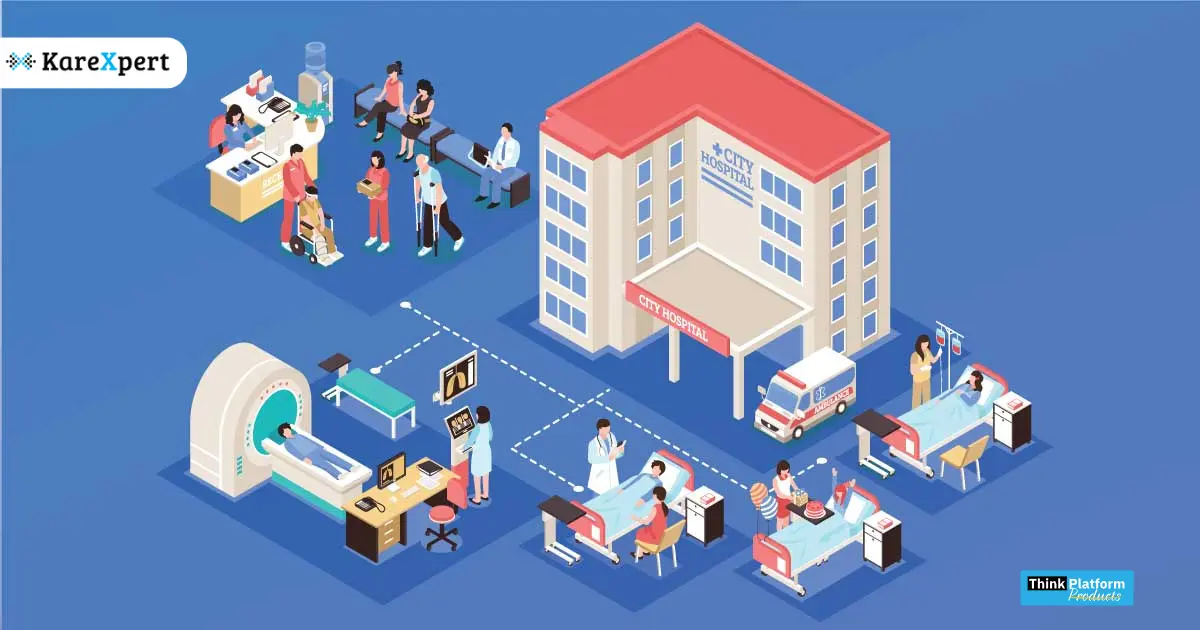What are Nonfunctional and functional requirements of hospital management system (HMS)?

Hospitals and healthcare facilities have a range of departments and verticals. Its smooth functioning is dependent upon the seamless operations through these verticals across functions. To streamline the processes and exchange of information throughout various functions, healthcare providers are increasingly adopting an integrated digital technology platform known as the Hospital Management System (HMS).
What is a hospital management system?
HMS is a digital technology platform that integrates various departments in the hospital, streamlines data generation and information flow across the functions, and helps automate processes and systems building inefficiency in the hospital operations.
It benefits healthcare facilities by streamlining workflows, minimizing the scope of error, automating mundane processes, enhancing the quality of care and patient experience, maintaining repositories of hospital health and administration data, and reducing administrative costs.
Functional Requirements
Hospitals have various types of functional requirements from patient registration, to scheduling consultations, to report generation. HMS helps in several functional requirements of a hospital, a few of which are as follows.
Undertaking various registration
HMS is able to facilitate various registration needs in a hospital. The system not only records all relevant information about the patient but also assigns a specific ID that uniquely identifies the individuals throughout the patient lifecycle in the hospital. This essentially means the operators in all subsequent departments, say diagnostics, IPD registration, physiotherapy or rehabilitation care, pharmacy, etc need not again record patient data but retrieve the information from the unique ID. This helps in uniquely integrating the entire treatment lifecycle, health data, and information pertaining to an individual automatically, thereby building transparency, reducing redundant and cyclical activities, infusing efficiency, and saving time and money by automating processes.
Check out
Similarly, during checkout, the HMS helps healthcare facilities in ensuring all formalities and commitments from hospitals to patients and vice versa are fulfilled. It thereafter is able to close the case during the checkout of patients. Hospitals can choose either of the two options: The first is that they can close the case during checkout but keep the patient ID intact and retrieve the ID and information in a follow-up visit. Or they can choose to delete the ID altogether and generate a new ID on a fresh visit.
Generating various reports
Hospitals need to generate various reports which include those that are related to patients and those that are pertaining to administration. By integrating all information flow and data recording through HMS, the generation of various reports becomes rather easy. HMS, therefore, helps record relevant information and relays them as per need, helping both treatments of patients and administration of hospitals.
Database
HMS helps in maintaining the database of patient information and health data in a transparent, secure, and accurate way. It makes recording and storage of the information rather easy. The platform facilitates almost instantaneous retrieval of data when required.
Non-functional requirements
Every hospital has some non-functional requirements, such as security, performance, maintenance, reliability, and so on. These are essential aspects of the entire healthcare delivery ecosystem, as they are not limited to one or few functions but are overarching requirements. HMS is able to cater to these non-functional requirements as well.
Security
HMS oversees humongous volumes of data generation, information exchange, storage, and analysis at every level of hospital functioning. As it is based on Cloud and other advanced digital technologies, it offers strong, multi-layered security to all data exchanges, and thereby protects the system from misuse or loss of information. The HMS platforms usually comply with the most stringent data security and privacy policies set in a country. As HMS is hosted on Cloud-based servers which are located away from the premises, it remains protected from cyberattacks on hospital systems. Overall HMS promotes transparency, protects the confidentiality, prevents data theft, and offers a safe and secure ecosystem for hospitals operations to continue.
Performance
By streamlining and integrating multiple processes, HMS infuses much speed, agility, and efficiency into the system. The platform has specially designed modules for various functions such as OPD management, IPD management, Cath Lab and diagnostics management, emergency care response, billing and payments, and operations. It has the ability to offer role-based control to users to allow them the use of one part of the function or multiple functions and help them monitor and track every activity necessary for healthcare delivery. Due to such intra-operability and flexible properties, HMS boosts the performance and capabilities of a healthcare facility in treating patients.
Maintainability
Good HMS technologies are easy to maintain. They are usually SaaS-based platforms that can be upgraded and improved upon remotely without hindering the daily activities of hospitals. Its maintenance activities can be pre-scheduled in parts considering when the activity is lowest, and it doesn’t take long to upgrade.
Reliability
Being software as a service, HMS is highly resilient to any technology disruptions, downtime, or crashes experienced by other technology systems. It has a certain capacity to work offline. It is highly secure from a data safety point of view. Furthermore, good HMS has a highly instinctive and intelligent user interface which makes them convenient to use.
Conclusion
HMS offers a complete package when it comes to catering to the needs of a healthcare facility. It is a highly scalable solution as it can be expanded for using more features or certain functions can be closed depending upon the need of the facility. It also negates the need for multiple technology solutions to support specific functions. Furthermore, good HMS solutions are white-labeled technologies that help hospitals to carry their own branding. HMS makes the work of healthcare staff much easy, leaving hospital staff with more time for what is required – to show care to patients.
Contact KareXpert today to know more!
Website: https://www.karexpert.com/
Email: info@karexpert.com
Phone: +91-9069113330




